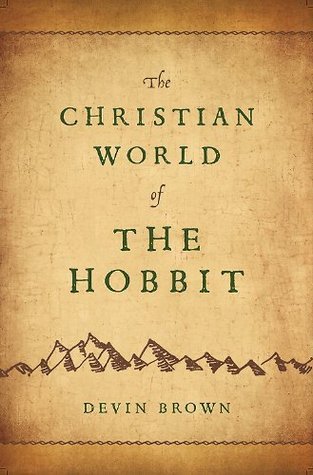What do you think?
Rate this book


In his beloved story, The Hobbit, J.R.R. Tolkien takes readers into a world unlike any other, yet so much seems familiar. As Bilbo journeys there and back again, glimpses of the spiritual are seen. Previous guides to Tolkien’s fiction have often made one of two wrong turnings: either they have entirely overlooked the Christian elements or they have claimed to find “Christian” elements everywhere, going far beyond the fundamental aspects that have been absorbed into the story.
The Christian World of The Hobbit does what no book has done: it brings Tolkien fans new delight by introducing a side of Tolkien that is rarely explored but vitally important to his writings—especially to The Hobbit. Written by internationally regarded Tolkien scholar, Devin Brown, this approachable, witty, and highly entertaining.
165 pages, Kindle Edition
First published October 1, 2012
“The story and its sequel are … about the achievements of specially graced and gifted individuals. I would say … ‘by ordained individuals, inspired and guided by an Emissary to ends beyond their individual education and enlargement’. This is clear in The Lord of the Rings; but it is present, if veiled, in The Hobbit from the beginning, and is alluded to in Gandalf’s last words.”